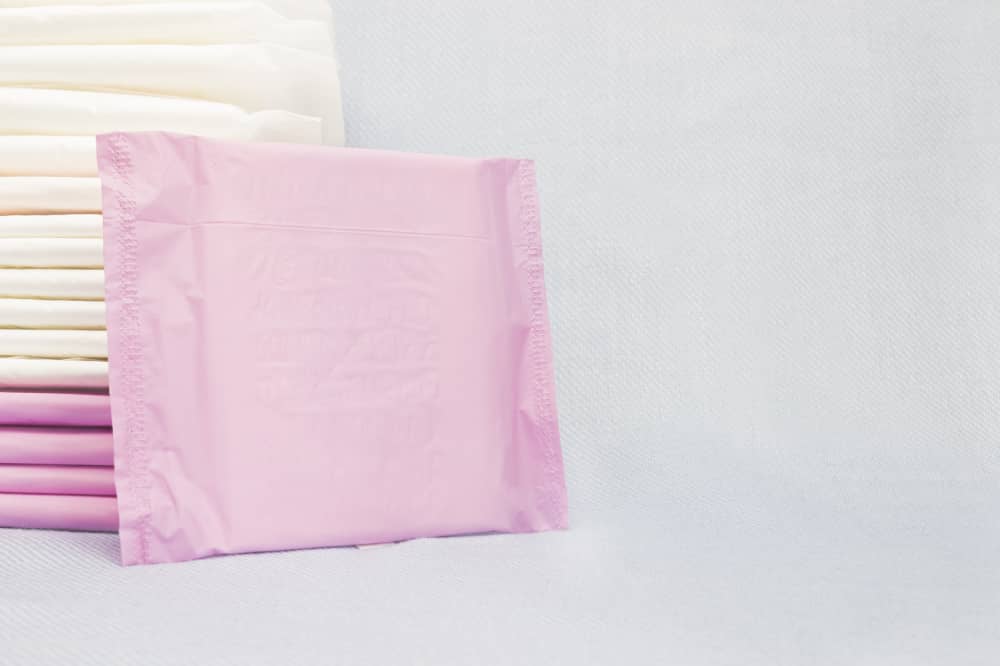9 menstrual mistakes to avoid for better health and hygiene

Menstrual health and hygiene is often an overlooked aspect of one’s overall health. As a result, there are several period mistakes that one may unconsciously commit, increasing the chances of infections and health disorders related to the reproductive system. Therefore, it is important to follow good hygiene practices to help one stay comfortable during periods without any potential health risks. Here are a few period mistakes to avoid for better health and hygiene.
Using scented pads, tampons, or toilet paper
Fragrant hygiene products contain several chemicals. Some of these even contain additives such as aloe. These additives can cause irritation and inflammation of the skin. Since the skin in and around the vagina is already sensitive, using scented pads, tampons, or toilet paper can cause discomfort. There can be persistent itching or burn-like symptoms. So avoid using fragrant, feminine hygiene products during periods. Make sure everything is fragrant and additive free. Organic products, menstrual cups, or reusable cloth pads are better alternatives.
Changing tampons or pads infrequently
To avoid rashes, bacterial growth, infections, and inflammation, it is important to change pads once every four hours. In the case of tampons or menstrual cups, a change is needed once every six to eight hours, depending on one’s period flow. Using tampons for long hours can increase the risk of toxic shock. Also, always pick hygiene products with absorbency levels that match the flow of periods. This will ensure that the pads or tampons are changed on time. However, it is not possible to change pads every four hours while sleeping. This is because during this time, bodily functions slow down, and the intensity of bleeding and the production of sweat and sebum decreases.
Washing the vagina and vulva too frequently
Keeping the vaginal area clean during periods is vital to prevent bacterial vaginosis, yeast infections, and other health issues. However, washing the vagina or vulva too frequently or thoroughly does more harm than good. One doesn’t have to worry about vaginal discharge. It is perfectly normal and can change during periods. The discharge is the vagina’s natural way of cleaning itself. Too much washing causes an imbalance in the natural pH level, increasing the risk of infection or bad odor. One only has to clean the vaginal region occasionally with just plain water. Make sure to clean from front to back to avoid bacteria or fecal matter entering the vulva or the vagina.
Giving in to food cravings
The loss of excess blood can affect one’s blood sugar and blood pressure levels. In addition, there are changes in levels of hormones such as progesterone and estrogen. As a result, one may have cravings for foods that are high in sugar and salt. However, foods that have high amounts of refined sugars will increase sugar levels in the blood leading to feelings of crankiness and low energy. Therefore, avoid eating excessive baked goods, candies, chocolates, sweet beverages, breakfast cereals, pasta, white bread, and foods made with white flour. Also, limit the intake of salt foods to avoid bloating and water retention. Eat smaller meals made of whole foods to have a healthy nutrient balance.
Using feminine hygiene sprays or deodorants
The vaginal area emits an odor that comes from the natural flora. During periods, the use of tampons, menstrual cups, and sanitary pads increases the growth of bacteria. Moreover, sweat and sebum accumulate. All of these elements lead to the presence of a distinct odor. To manage this, one may get in the habit of using feminine hygiene sprays or deodorants. However, these can trigger redness, itching, and abnormally heavy vaginal discharge. Instead of using these products, use non-fragrant wet wipes or clean with plain water to minimize the odor.
Not using protection during periods
It is a misconception that one cannot get pregnant during a period. Therefore, it’s imperative to use condoms during sexual intercourse, even when one is going through their menstrual cycle. In addition, avoiding the use of protection increases the probability of getting sexually transmitted infections (STIs). One is also at risk of developing pelvic inflammatory disease since the cervix is dilated during periods.
Not drinking enough water/fluids
With the loss of blood during periods, the body also loses fluids and essential electrolytes. This can make one feel tired and weak. Moreover, there can be a drastic change in the body temperature, blood pressure, and blood sugar levels. So if one is not drinking enough water during menstruation, it can lead to several problems. Along with drinking sufficient water, one can also have several fluids throughout the day. These include coconut water, herbal teas, soups, fruit juices, and smoothies. These help restore the electrolyte levels in the body and keep one hydrated.
Not taking precautions to avoid bloating or constipation
Right before the start of periods, there is an increase in the levels of progesterone. This can affect digestion and slow it down. As a result, one may start to feel constipated or bloated. Once the periods start, the progesterone level comes down. However, the digestive system takes some time to get back to normal. During this time, constipation, along with periods, can worsen cramps, bloating, and discomfort. Therefore, taking a few precautions to manage the symptoms of constipation when one is on periods is important. This includes eating foods with high insoluble fiber like whole grains, bran, potatoes, vegetables, and beans.
Following a heavy workout routine
It is important to do a few physical exercises depending on one’s intensity of cramps and flow during periods. This can help in managing cramps, discomfort, and blood sugar levels. Walking, yoga, or any simple exercises that can be done as they are effective at such times. However, it’s a mistake to engage in heavy workout routines. It can cause periods to stop and lead to a condition known as amenorrhea. It will affect normal ovarian function leading to reproductive system health disorders.
















